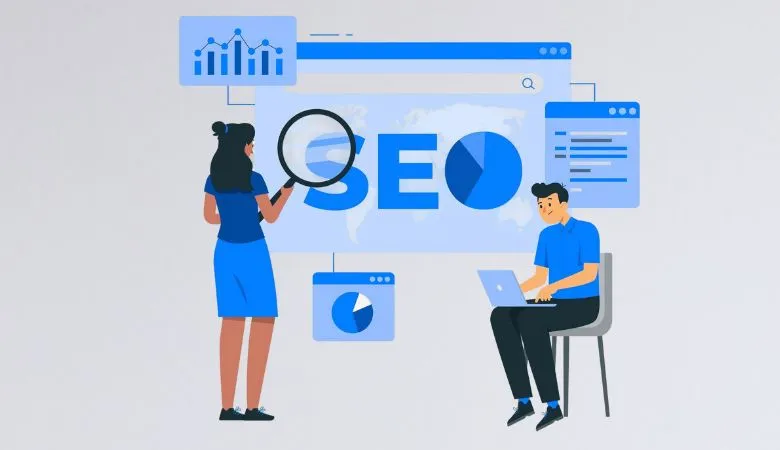How to Combine Artificial Intelligence with SEO?

The development of new artificial intelligence technologies, such as ChatGPT, forces search engines like Google or Bing to update themselves constantly. The same thing happens with SEO, which is also continually evolving to adapt to the changing search habits of users.
How to combine AI with SEO in the organic positioning strategy of brands to achieve the best results.
SEO and Artificial Intelligence
Constant updates to the Google algorithm aim to offer increasingly precise, rich and valuable answers to user queries. A good SEO strategy has to know how to deal with these changes, optimizing both technical and content aspects to ensure good organic positioning of the website within the results pages.
In this work, AI is presented as an ideal assistant to perfect tactics, correctly identify the target audience, detect search trends, find ways to improve the user experience and even generate highly personalized content in an automated manner.
All of this allows us to react quickly and efficiently, matching communication with the interests of the digital community and potential clients.
But could Google penalize using these Artificial Intelligence tools for content creation? As usual, the answer to this question is putting the user at the centre. According to Google sources, if AI content creation does not aim to manipulate positioning, this practice will not be punished within the rankings. Reliable, valuable and people-oriented content will be rewarded by Google with greater organic visibility, whether AI has been involved in its creation or not.
5 Ideas for Using Artificial Intelligence to Improve SEO Positioning
- Refine the keyword search: To recognize the determining keywords for the business, various AI tools can study the behaviour of potential customers. In addition, they allow drawing comparisons with competitors and tweaking the content generated around these keywords so that it has a better chance of climbing to the top positions in the SERP.
- Predict trends: Artificial Intelligence and machine learning applied to historical data make it possible to anticipate user behaviour. This knowledge is precious for planning digital marketing actions, anticipating the emergence of trends and the competition itself.
- Optimize meta-tagging: Meta tags help search engines interpret a website’s content while promoting SEO positioning and providing information to users. Titles, descriptions and other metatags can be optimized in bulk with AI tools, saving time and resources within SEO Content tasks.
- Respond to visual and voice searches: The new ways users search by voice, through Siri or Alexa, and by images, through Google Lens, are gaining ground over written language. Generative AI can support the development of multi-format content aimed at these queries.
- Diagnose failures and propose solutions: AI makes locating weak points within a strategy, content or website easier. Once the diagnosis is made, AI also assists in proposing solutions and evaluating them.
AI is presented as a handy instrument to extract ideas, improve strategy and save time on the most tedious tasks. However, in this new scenario, the role of the SEO specialist becomes even more essential.
Some decisions have to do with the business objectives, the identity of the brand, and the digital path it wants to take that can never be left in the hands of AI. Furthermore, at the level of content generation, you must review the texts created by ChatGPT or any other AI application.
It is essential to verify that the data and statements made are truthful, that the language is appropriate and that the content is not subject to bias (for example, gender, nationality or social class).





![Old and Present SEO Practices: Guide for the Latest SEO [2025]](https://www.scrolltrendy.com/wp-content/uploads/2025/01/Latest-SEO.webp)
